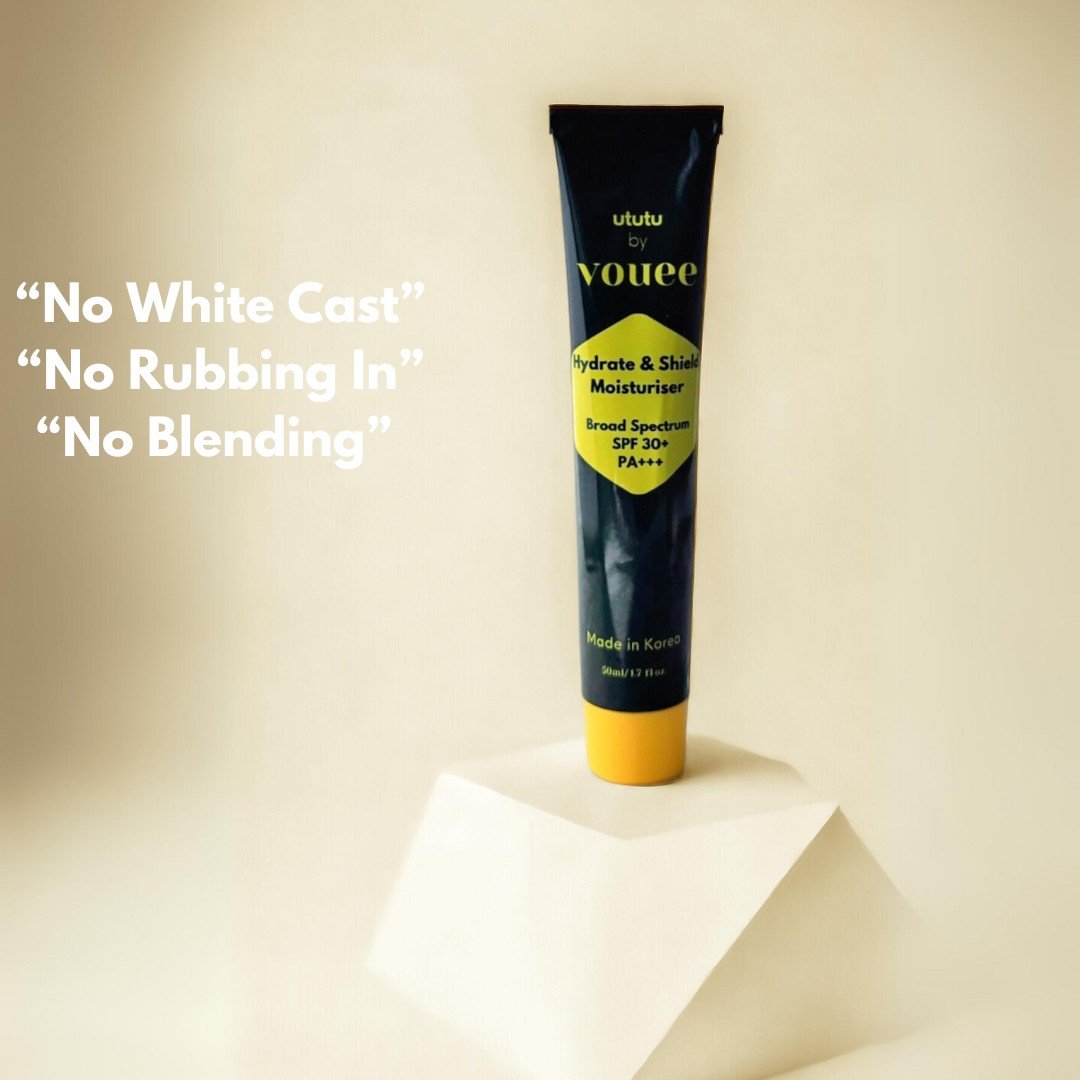Cystic Acne in Darker Skin Tones
Cystic acne is a challenging condition characterized by deep, painful blemishes beneath the skin’s surface, often leaving scars upon healing.
This is particularly problematic for individuals with darker skin tones because their skin contains more melanin.
This melanin, while protective against the sun, also makes the skin more susceptible to scarring and dark spots after acne outbreaks.
This type of acne doesn’t take kindly to standard over-the-counter treatments and requires a more strategic approach to mitigate its impact.
The conversation becomes even more critical when discussing cystic acne in individuals with darker skin tones, as the risk for post-inflammatory hyperpigmentation (PIH) and scarring skyrockets, leaving lasting marks that go beyond the skin’s surface.
Cystic Vs Regular
The difference between regular acne and cystic acne is about the size, the pain level of the blemishes, but fundamentally about understanding the underlying causes and mechanisms that lead to these skin concerns.
Regular Acne: Typically involves blackheads, whiteheads, and smaller pimples that form at the skin’s surface. These blemishes are often caused by clogged pores due to excess oil, dead skin cells, and sometimes bacteria.
Cystic Acne: Represents a more severe form, with large, inflamed cysts forming deep within the skin. These cysts are painful, can last for weeks or months, and are more likely to leave behind scars and dark spots known as PIH.
This distinction is crucial because it directs the course of treatment – from the mild, topical solutions suitable for surface-level issues to the more intensive therapies needed to combat the subterranean turmoil caused by cystic acne.
In the context of darker skin tones, the stakes are heightened due to the skin’s response to inflammation. The skin reacts by ramping up melanin production, leading to dark spots or PIH where the acne once was.
This response means that managing cystic acne in darker skin isn’t just about clearing up current breakouts; it’s equally about preventing the aftermath that can linger long after the acne has subsided.
Addressing cystic acne effectively requires a holistic strategy that encompasses lifestyle adjustments, skincare routines tailored to the unique needs of melanin-rich skin, and, when necessary, professional interventions from dermatologists who specialize in treating diverse skin types.
The goal is clear – to reduce inflammation, prevent blockage of pores, and minimize the risk of PIH and scarring, thereby promoting healthier, more resilient skin.
The Physical Challenges of Cystic Acne in Darker Skin Tones
Managing cystic acne involves more than just addressing the physical symptoms; it also impacts how individuals see themselves. People with darker skin might feel particularly conscious about their appearance due to the more visible marks left by acne.
The journey of managing cystic acne is complex, involving both the physical aspects of the skin and the psychological impact of its appearance.
For those with darker skin, finding effective treatments is crucial, as inappropriate care can lead to further skin irritation or exacerbate scarring. It is essential to approach skincare with gentleness, using products formulated for sensitive skin, and to seek dermatologists who are knowledgeable about treating melanin-rich skin.
It is important to ensure that treatments are appropriate and effective.
The Mental and Emotional Toll of Cystic Acne in Darker Skin Tones
Imagine having something on your face that you feel everyone is staring at. It can make you want to avoid mirrors, or even avoid going out.
That’s what cystic acne can do. It’s not just about the skin; it’s about how it makes you feel inside.
People with cystic acne, especially on darker skin, might feel really sad or worried a lot. They might think they’re the only ones going through this, but that’s not true. Feeling good about ourselves is important.
When acne gets in the way, it can make us feel less confident. But remember, your beauty isn’t just skin deep. It’s about who you are on the inside. And while dealing with acne is tough, it doesn’t define you.
Overcoming Cultural and Societal Challenges
The impact of cystic acne transcends skin deep, touching on mental health and societal perceptions. In communities where flawless skin is often celebrated, those with acne can feel isolated or judged.
It’s crucial to foster environments that promote skin positivity and mental well-being. Encouraging conversations about acne and its effects can demystify the condition and support those affected.
Additionally, finding representation in the beauty and healthcare industries can affirm that all skin types and tones are beautiful and deserving of care. This empowerment helps individuals with darker skin tones to seek out and demand products and treatments suited to their needs.
Strategies for Managing Cystic Acne in Darker Skin Tones
While treating acne after it appears is important, preventing it from showing up in the first place is like winning half the battle. Keeping your skin clean, avoiding products that clog pores, and eating a balanced diet can help manage both regular and cystic acne.
For those with darker skin tones, being gentle with your skin and avoiding harsh treatments that can cause dark spots or scars is golden advice. Now, let’s talk about some ways to take care of your skin and help heal your heart too.
Effective management of cystic acne involves establishing a skincare routine that includes gentle cleansing and moisturization, as well as protecting the skin from the sun to prevent dark spots from becoming more pronounced.
Sometimes, skincare products alone are not enough to manage cystic acne, and medical intervention may be necessary.
Dermatologists can provide personalized treatment plans, including medications or other therapies suited to individual skin needs.
Maintaining a healthy lifestyle, including a balanced diet, adequate hydration, and sufficient sleep, is also part of effective acne management. A healthy body supports healthy skin. Eating healthy foods, drinking lots of water, and getting enough sleep are also part of the plan.
Special Considerations for Darker Skin Tones
Managing cystic acne in darker skin requires a delicate balance to avoid exacerbating issues like hyperpigmentation and keloid scarring. An essential step is the use of azelaic acid, a less known but powerful ingredient.
Azelaic acid not only combats acne-causing bacteria but also fades dark spots without lightening the surrounding skin. It’s a win-win for those battling cystic acne and PIH.
Sun protection is another non-negotiable aspect of acne care for darker skin. Sun exposure can darken acne scars and slow the healing process. Opting for a broad-spectrum sunscreen that doesn’t leave a white cast can protect your skin while keeping it clear and even-toned.
The Healthcare System
Getting through the healthcare system for cystic acne treatment, especially for those with darker skin tones, requires patience and persistence. It’s important to find a dermatologist who understands and respects your skin’s unique needs. Here’s how to wrap up your journey towards healing and managing cystic acne effectively.
Finding a good dermatologist can feel like searching for a needle in a haystack, but it’s crucial. Look for doctors who have experience treating melanin-rich skin and cystic acne. Don’t be shy to ask questions or seek a second opinion if something doesn’t feel right. Remember, you deserve the best care for your skin.
Personal Stories and Successes
Knowing you’re not alone on this journey can make a world of difference. Many people with darker skin tones have successfully managed their cystic acne and found a path to clearer, healthier skin.
Connecting with others who have successfully managed their cystic acne can provide encouragement and valuable insights. Sharing experiences through various platforms can offer support and motivation to those currently struggling with their acne.
Their stories can offer hope, inspiration, and practical advice.
Whether it’s through social media, blogs, or community forums, sharing experiences can empower and enlighten others facing similar challenges.
Customized Skincare Routine for Darker Skin Tones
A tailored skincare routine can make a significant difference in managing cystic acne for those with darker skin tones. Here’s a step-by-step guide focusing on gentle care and hydration:
Gentle Cleansing: Choose a mild, sulfate-free cleanser to remove impurities without stripping the skin.
Effective Exfoliation: Incorporate a chemical exfoliant with glycolic acid or salicylic acid 1-2 times a week to remove dead skin cells and unclog pores.
Hydration and Moisturizing: Opt for a lightweight, non-comedogenic moisturizer to keep the skin hydrated without clogging pores. Look for ingredients like hyaluronic acid and niacinamide.
Sun Protection: Daily use of a broad-spectrum SPF 30 or higher sunscreen can protect against sun damage and prevent dark spots from worsening.
Hydrate & Shield Moisturizer
SPF30 Sunscreen for Melanin-Rich Skin: No White Cast Protect your melanin-rich skin from harmful UV rays with our Hydrating SPF30 Broad Spectrum Moisturizer. Specially formulated for black, brown,…
Remember, consistency is key to seeing results, and patience is paramount as your skin adjusts and heals.
Conclusion
Dealing with cystic acne, especially in melanin-rich skin, is a journey that goes beyond skin deep. It’s about understanding the unique challenges, finding the right care, and supporting your mental and emotional well-being.
With the right strategies, patience, and support, managing cystic acne is possible. Remember, your skin does not define your beauty or your worth. You are strong, resilient, and capable of overcoming this challenge. Through a holistic approach that includes proper skincare, healthy lifestyle choices, and emotional support, you can navigate the complexities of cystic acne.
Don’t hesitate to reach out for help, and always remember to care for yourself, inside and out. As you continue on your path to clearer skin, keep in mind that every step forward is a victory.
Celebrate your progress, be kind to yourself, and keep looking forward with hope and determination.
Your journey towards healthier skin and a happier you starts with understanding, compassion, and action.cyst
Empowering Individuals with Darker Skin Tones
Cystic acne in darker skin tones presents unique challenges, but with the right knowledge and tools, it’s manageable.
By understanding the specifics of cystic acne, implementing preventative measures, and opting for treatments that consider the nuances of melanin-rich skin, individuals can see significant improvements in their skin health.
Empowerment comes from representation and inclusivity in the beauty and healthcare industries, ensuring that all individuals feel seen, heard, and adequately cared for. Let’s continue to push for diversity and educate ourselves and others on the best practices for all skin types and tones.
FAQs
Q: Can diet really affect cystic acne?
A: Yes, certain foods, especially those high in sugars and dairy, can trigger hormonal fluctuations that may exacerbate acne.
Q: How long does it take to see results from a new acne treatment?
A: It can vary, but typically it takes about 6 to 8 weeks to see noticeable improvements. Patience and consistency are key.
Q: Are natural or home remedies effective for cystic acne?
A: While some natural remedies can support skin health, it’s important to approach them with caution, as they may not be effective for severe acne and could potentially irritate the skin. Always consult with a dermatologist before trying new treatments.
Q: Can makeup worsen cystic acne?
A: Yes, if you’re using comedogenic (pore-clogging) products. Opt for non-comedogenic, oil-free makeup and ensure you remove it thoroughly every day.
Remember, tailor your approach to fit your individual needs and consult with a dermatologist for personalized advice.
Follow our IG @voueeskin for more skincare chit chat!








Recent Comments